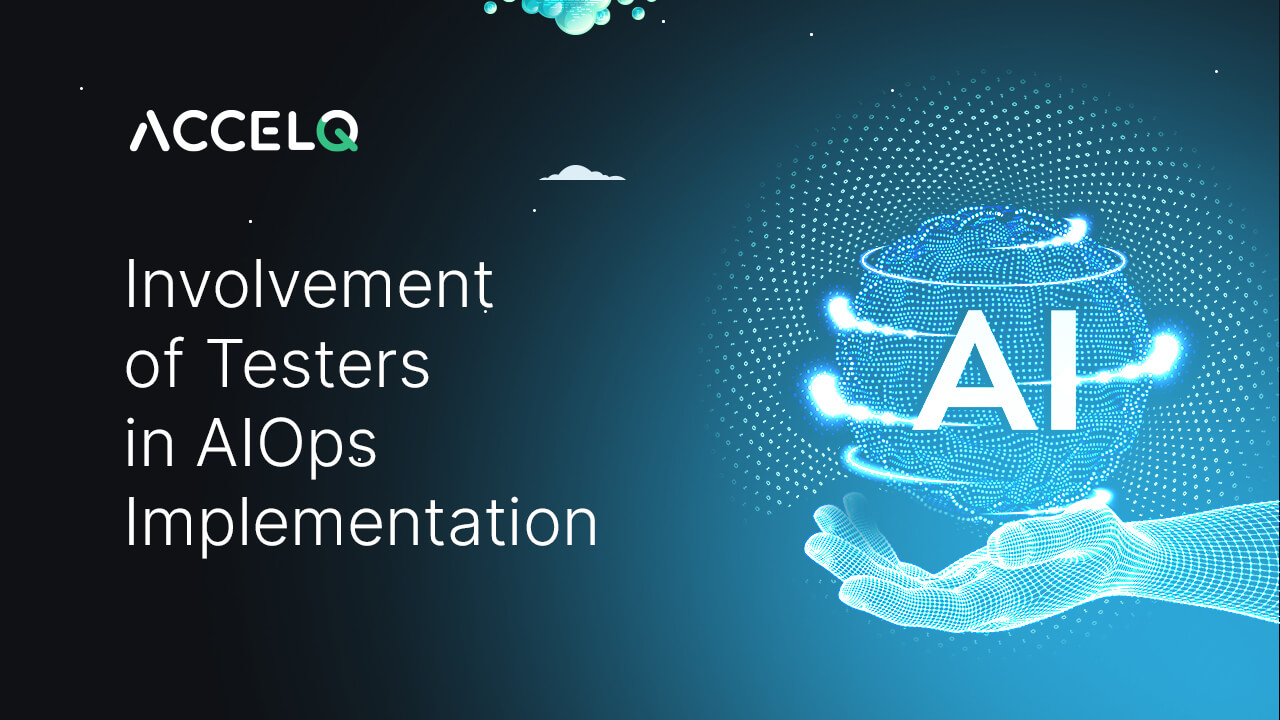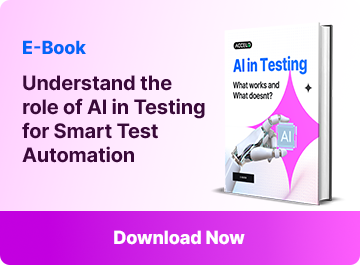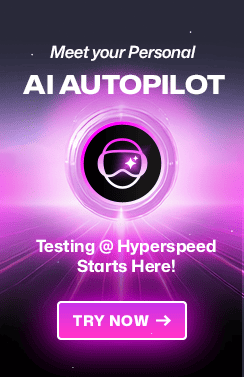AIOps for Test Automation: The Future of Smarter Testing

Artificial intelligence, machine learning, and IT operations are becoming potent test automation options. AIOps helps teams automate complicated testing activities, quickly detect and address issues, and predict future issues by analyzing massive volumes of data intelligently. This speeds up software development and enhances product quality and user happiness. Our blog will discuss how AIOps for test automation is changing the future of software testing.
What Is AIOps?
Artificial intelligence for IT operations, or AIOps for short, uses big data analytics, artificial intelligence, and machine learning to enhance and automate IT operations. It processes vast amounts of real-time data, identifies trends, and offers expected insights. It excels in traditional monitoring systems, improving the dependability and efficiency of IT systems. AIOps are essential in guaranteeing continuous operations and delivering great user experiences as businesses gradually adopt complex and constantly changing IT infrastructures.
AIOps in Test Automation
ACCELQ’s Autopilot and AIOps-driven test automation enhances the intelligence and efficiency of the software testing process. Conventional test automation mainly depends on manual scripting and supervision, but AIOps incorporates AI-driven insights to improve the process.
Benefits of AIOps for Test Automation
Including AIOps for test automation has a few significant benefits.
- Test Accuracy and Productivity: AIOps uses artificial intelligence to evaluate enormous data volumes, producing more accurate test results and simplified testing procedures.
- Time and Cost: Automating standard processes and improving test cases helps AIOps significantly reduce the time and expense connected with testing.
- Predictive Analytics and Insights: AIOps offers predictive analytics, which helps teams spot possible problems before they start, fostering proactive problem-solving.
- Issue Detection and Resolution: By constantly monitoring and analyzing IT environments, AIOps enable real-time issue detection and resolution, lowering downtime and enhancing general system dependability.
Role of Testers in AIOps Implementation
Tester's roles are changing as AIOps become increasingly crucial for test automation. Testers help to implement successful AIOps by:
- Testers provide critical insights into test procedures and data, enabling AIOps solutions to be refined for best performance.
- Testers actively participate in AIOps-driven initiatives to make sure AI-driven insights complement actual testing requirements.
- Focusing increasingly on strategic oversight, testers responsibilities change from manual execution to supervising and enhancing AI-driven automation.
- To properly collaborate with AIOps tools, testers must acquire fresh skills, including knowledge of artificial intelligence/machine learning ideas and data analytics.
Challenges in Implementing AIOps for Test Automation
Technical issues arise when implementing AIOps in test automation:
Integration with Legacy Systems
Many firms have legacy systems that are non-AI-integrated. Retrofitting these systems for AIOps requires custom connectors or middleware, which is time-consuming.
Data Volume and Variety
AIOps uses lots of data from logs, metrics, and monitoring tools. Aggregating, cleansing, and normalizing this data for AIOps analysis is a technological challenge.
Model Training and Accuracy
AI models are essential to AIOps. Training these models on relevant, high-quality data to reduce false positives and negatives can be difficult in fast-changing workload scenarios.
Resource Use
AIOps technologies, especially machine learning ones, require much processing power and storage. This may strain infrastructure, requiring upgrades or cloud solutions.
Best Practices for Integrating AIOps in Test Automation
Strategic and technical planning is needed to integrate AIOps into test automation. Some best practices:
Start with a Pilot Project
Try AIOps in a limited, controlled context. Choose a testing process or module where AIOps can help immediately. This will help you discover integration issues and refine the technique before scaling across the enterprise.
Ensure Data Readiness
AIOps relies on data. Establish robust data pipelines to guarantee that logs, monitoring tools, and test results are always available and in an AIOps-friendly format. Practice data governance to maintain data quality.
Integrate Containerization and Microservices
Scale and adapt AIOps using containerization. Microservices architecture isolates AIOps components for independent updates and reduces system-wide failures.
Customize AI Models
Not all contexts require out-of-the-box AI models. Customize or train AI models using your organization's test data and workflows to ensure AIOps solutions meet your testing goals.
Continuous Monitoring and Feedback Loops
Track AIOps-driven test automation performance with continuous monitoring. Use feedback loops to continuously improve AI models and processes to adapt to environmental changes and retain accuracy.
Security and Compliance
Ensure your AIOps deployment meets security and compliance standards. Encrypt sensitive data, create role-based access restrictions and audit AIOps procedures to prevent breaches and comply with regulations.
AIOp's Future in Test Automation
AIOps in test automation have bright prospects marked by interesting advancements:
Advanced Predictive Analytics
AIOps will use increasingly advanced machine learning models to help systems forecast and prevent problems with even greater accuracy, lowering downtime and improving dependability.
AI-Driven Self-Healing Systems
The next generation of AIOps will include autonomous test environments that find problems and autonomously fix them, hence producing self-healing test automation pipelines.
Deeper Integration with DevOps
AIOps will fit perfectly with DevOps methods as it develops, enabling ongoing testing and monitoring throughout the development process. This will lead to faster releases and a more nimble reaction to market needs.
Expansion to New Areas
Beyond IT operations and test automation, AIOps will be used increasingly in fields such as security, compliance, and customer experience, providing a complete method for controlling digital ecosystems.
Conclusion
AIOps improve testing accuracy and efficiency by using artificial intelligence and machine learning, enabling teams to be more proactive and strategic. Though the road to completely incorporating AIOps could present difficulties, ACCELQ provides indisputable long-term advantages. Embrace AIOps from ACCELQ to be ahead of the competition and win in the fast-changing technological competitive scenario. Get your demo today!
Discover More
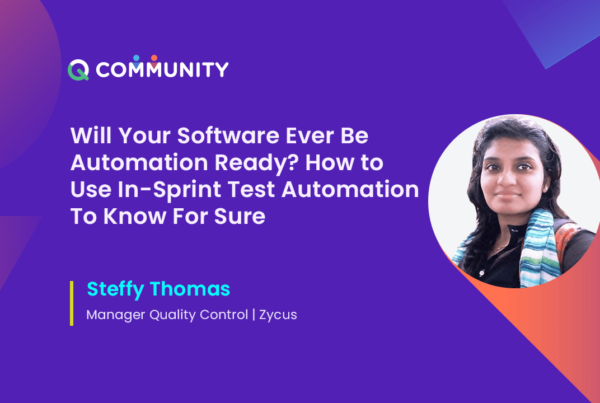 Will Your Software Ever Be Automation Ready? How to Use In-Sprint Test Automation To Know For Sure
Will Your Software Ever Be Automation Ready? How to Use In-Sprint Test Automation To Know For Sure
Will Your Software Ever Be Automation Ready? How to Use In-Sprint Test Automation To Know For Sure
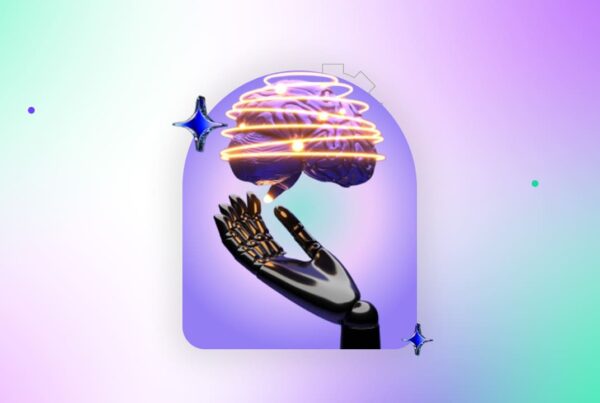 Smarter, Faster Testing with Generative AI-Powered Autopilot
Smarter, Faster Testing with Generative AI-Powered Autopilot






























